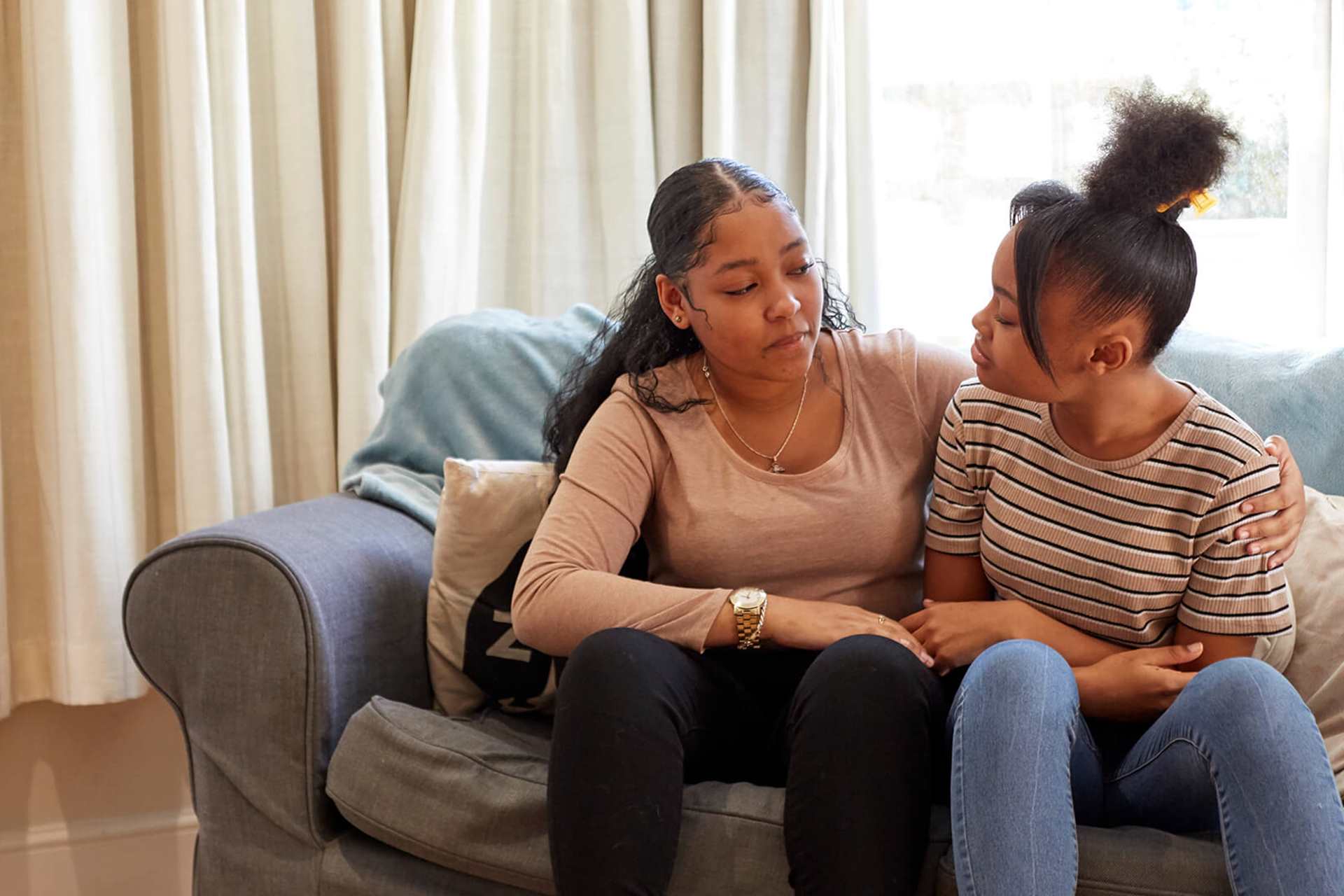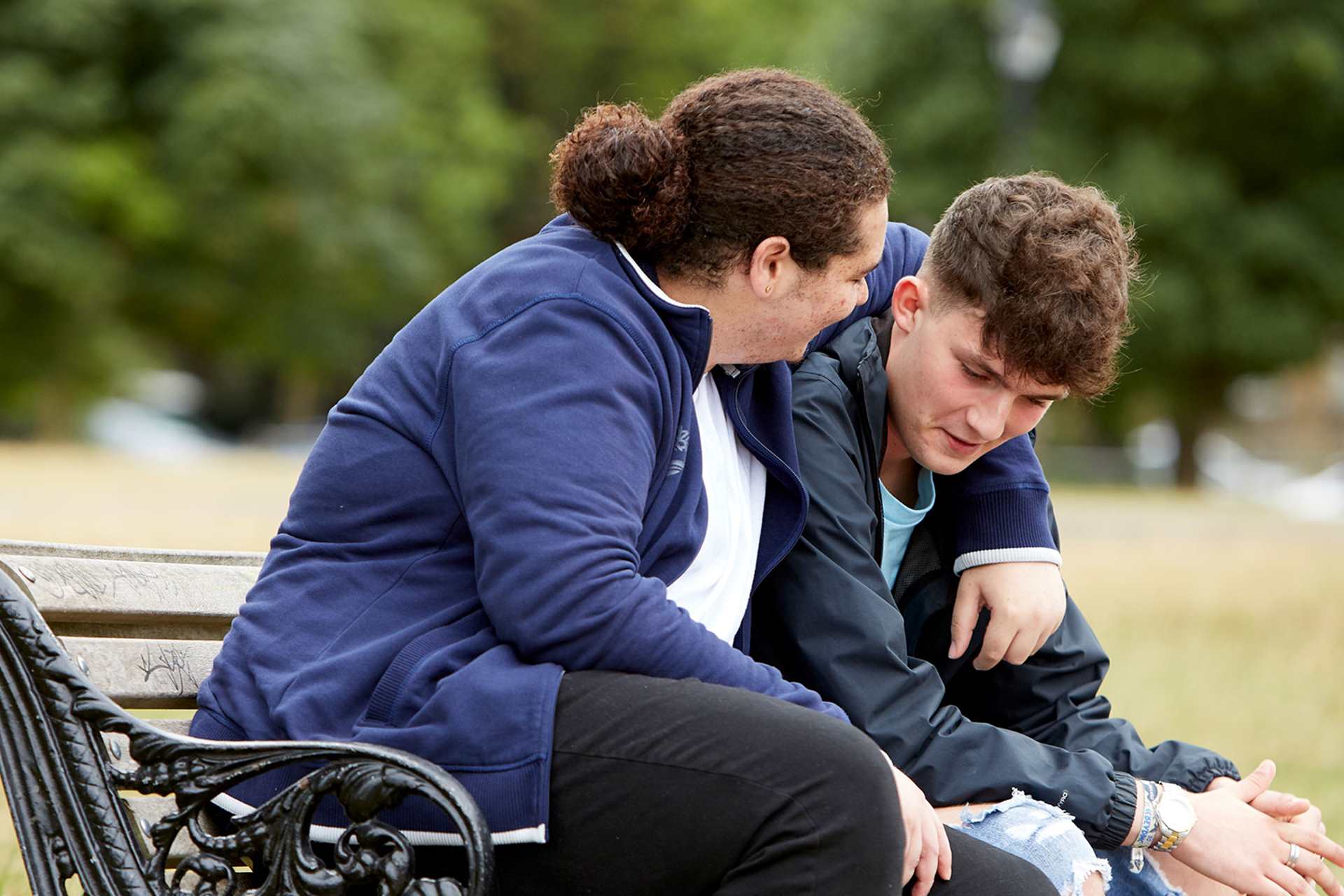Topics mentioned: suicidal feelings, reaching out for help, self-care
About: C.K., 21, shares her tips on how to cope with suicidal thoughts and feelings.
If you're at a time in your life where you're thinking 'what's the point of carrying on,' or you know someone else who is, I hope my words give you comfort and remind you that you are not alone. Thank you for taking the time to read this.
Here are some things that helped me when I was struggling:
Journaling
I’ve been journaling for years and it’s helped immensely. When going through a difficult period, our brains can become like alphabet soup. Words seem to spiral around, thoughts become unclear, and knowing that we’re stressed can make us feel even more stressed! Taking the time to put your thoughts down on paper can be really helpful.
If you’re new to journaling, then I would advise you not to think too much whilst writing. It’s best to allow whatever is in your mind to flow through your arm, into your hand and onto that paper. It can feel weird and awkward at first. You might even be surprised at what you come out with!
Once I started talking, it wasn't as scary as I initially thought
Reaching out to loved ones for help
I understand this may be extremely hard. The last thing you want to do when you’re feeling so low is to a) tell someone how you feel, and b) admit to yourself how you feel. I found that telling friends or family how I was feeling felt terrifying, weird and even a little forced. Perhaps because it was hard to face what I was feeling myself. However, leaning on a support network allowed me to work on things in a safe space. And once I started talking, it wasn’t as scary as I initially thought.
Addressing the root of the problem
If you dig deep enough, there are usually underlying reasons for our thoughts and actions, whether they stem from our upbringing, or unconscious habits and behaviours we’ve picked up along the way. Sometimes, it takes a little work to untangle these things, which is why counselling may be helpful. Little problems and anxieties can build up and make us really low without realising, so it helps to have someone you can use as a sounding board for your thoughts.
Your counsellor may refer you for another form of therapy that may click with you better.
Or, you may find counselling isn’t helpful, and that’s okay too. Sometimes this sort of thing doesn’t work for everyone. But perhaps it’s the rapport with your counsellor that isn’t working, so I’d suggest trying another, or taking a break for a while and coming back when you’re ready. Your counsellor may refer you for another form of therapy that may click with you better. Regardless, be as honest with your counsellor as you can.
Setting goals
Having something in the distance to look forward to can help elevate your mood and raise your morale. It could be booking a really fun activity you’ve never tried before, meeting up with friends, or even something as small as watching your favourite Netflix series at the end of a long day. Whatever it may be, having something to look forward to can help you get through the bad days.
Setting goals can also help you envision a bigger and brighter future. Whether those goals are career-oriented or not, trying to look ahead can give you a sense of stability and calm feelings of anxiety about the unknown.
Routine
Establishing patterns helps in the long run. But it begins with developing awareness of your current daily routine. This isn’t easy - I’m still working on it myself. But I’ve found that identifying behaviours that aren’t beneficial to you, like endlessly scrolling through Instagram before bed and sleeping late, can be really helpful. It’s hard to force good habits, but it can do wonders for your overall mood.
It’s hard to force good habits, but it can do wonders for your overall mood.
Purpose
Finding purpose was by far the most useful tool in helping me out during tough times. Although the things I’ve mentioned above helped in the short term, I found that having a reason behind everything I did was the most useful in the long term. Finding your purpose – your reason to get out of bed in the morning – is a feeling like no other.
If you don’t know what your purpose is, don’t worry. I recommend trying out new activities or hobbies that feel manageable to see what really resonates with you. You can’t go wrong if you’re continuing to learn, but don’t be too hard on yourself if that feels too much right now.
I highly recommend 'A Man’s Search for Meaning'. If there’s one book you’ve got to read, it’s this.
Just know that sometimes we want a bad period of life to end rather than life itself.
You are not alone
You are not alone, many people either have experienced or are currently experiencing feelings of anxiety, depression or hopelessness, even if they don’t show it. Just know that sometimes we want a bad period of life to end rather than life itself.
More information and advice
We have tips and advice to help you find the support you need. Take a look at our guides.
Where to get help
However you're feeling, there are people who can help you if you are struggling. Here are some services that can support you.
-
Papyrus
Offers confidential advice and support for young people struggling with suicidal thoughts, as well as family and friends; and information about how to make a safety plan.
Its helpline service - HOPELINE247 - is available to anybody under the age of 35 experiencing suicidal thoughts, or anybody concerned that a young person could be thinking of suicide.
There is a chat service available on the website.
- Opening times:
- 24/7 every day of the year
-
Samaritans
Whatever you're going through, you can contact the Samaritans for support. N.B. This is a listening service and does not offer advice or intervention.
- Opening times:
- 24/7
-
CALM (Campaign Against Living Miserably)
Provides support to anyone aged 16+ who is feeling down and needs to talk or find information.
Free webchat service available.
Read information about the helpline and how it works.
- Opening times:
- 5pm - midnight, 365 days a year






